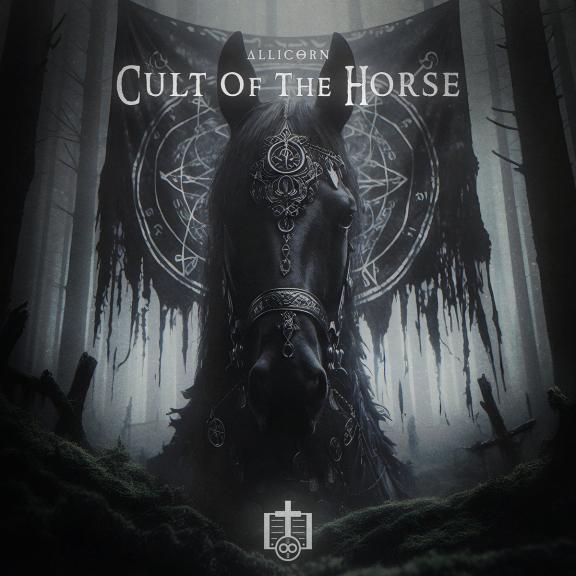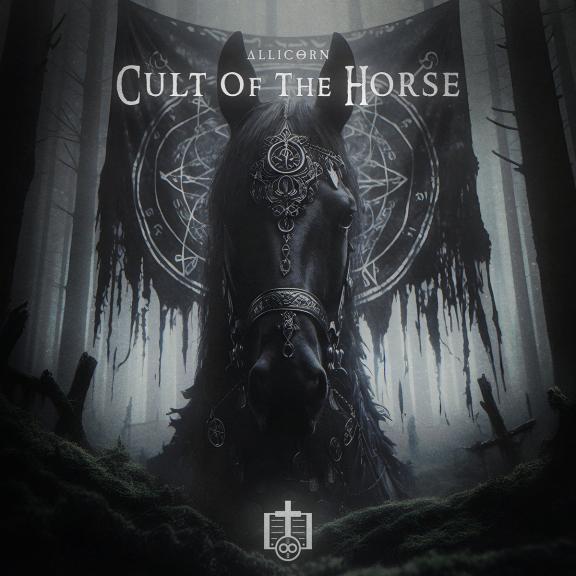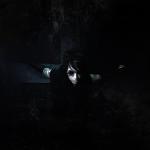Like many artists on the witch-house scene, it's not easy to trace the career of ΔLLICΘRN (you'd already have to find the "Δ" key on your keyboard). Her online existence is limited to what the label lets filter through (a British origin and that's about it) or what can be found of a discography begun in 2012 with At the Mountains of Madness, one of the orchestral albums inspired by Lovecraft's work released by the artist and which was still a far cry from today's electronic nightmares. This mystery and anonymity fits well with the spirit: a digital ghost, ΔLLICΘRN returns to haunt us with frequent releases. She's been churning out album after album and EP after EP, and the latest, Cult of the Horse, has just been released via Untitled Burial.
Riding passion? ΔLICΘRN previously released A Pale Horse in 2021 but, obviously, that pale horse was a far more sinister omen than a smell of manure in the straw. This time around, the album draws on Celtic and Norse mythology to create a mystical atmosphere. It works straight away, with the hypnotic strings sampled on the intro to Haunted by my Former Selves muffled by saturated bass and the strident, gloomy melody that follows plunging us into the album's occult universe.
ΔLLICΘRN seizes on the codes of witch-house to retain what we prefer: a funereal heaviness, distorted and spectral sounds, rhythms borrowed from trap music and a scent that is both macabre and esoteric, oppressive and mysterious but not without a certain poetry à la Noire Antidote. It's when we move from monoliths of blackness to icy ponds of synthetic darkness that we prefer ΔLLICΘRN. Incidentally, it's worth noting that the absence of vocals (which isn't the case on all her releases) not only allows more room for the melodies, supported by a few traditional instruments that contribute to the ritualistic atmosphere, but also avoids lightening the morbid tone of the tracks too much.
If some of the tracks are a little too airy and light for our sad passions along the way, although they retain that delectable afflicted mood, the hypnotic power of Detestation Rite, the anxiety-inducing despair of Lost Skies, the underlying threat of Cursed Incarnation or the funereal slowness of the title track, for example, keep us captive to the spell. We'd be gladly sacrificing ourselves between two thousand-year-old rocks on a moonless night.
Now, what about the horses? Well, remember that nightmare (or 'nachtmar' in german and "cauchemar" in french) refers to 'mære' which, in Old English, is an evil spirit that comes to suffocate us while we sleep, but could aswell be a night-mare ! The two may not be related, but they do look the same. Go and ask Füssli what he thinks! Leaving aside our etymological ravings, Cult of the Horse is indeed a nightmarish album, both mysterious and poetic, with an oppressive atmosphere, gloomy and sticky with despair.





